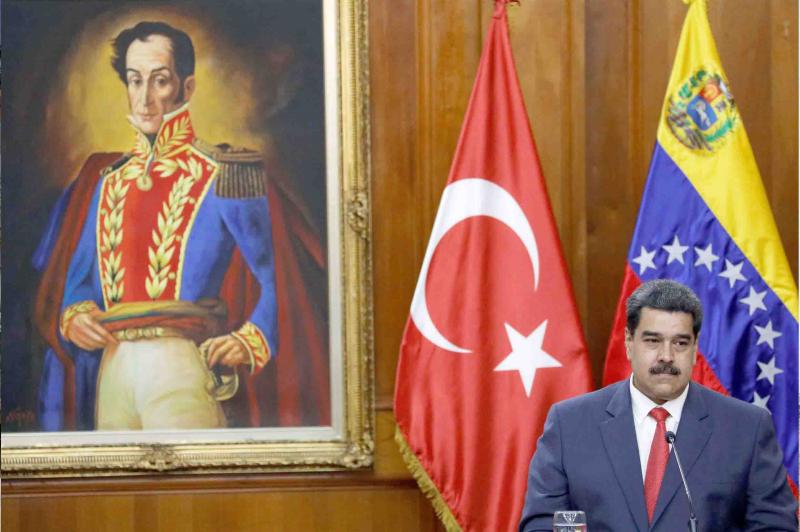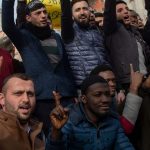WASHINGTON – Tensions between Turkey and the United States escalated after the US government said it may consider secondary sanctions against Turkey because of its support for Venezuelan President Nicolas Maduro, whom the United States no longer officially recognises as the country’s leader.
“Turkey’s support for the Maduro regime obviously is completely contrary to US policy and very unhelpful,” Elliott Abrams, US special representative for Venezuela, said March 12. “We will continue to take a look at the ways in which that support takes place and in the context of sanctions by [the US] Treasury.”
The United States announced that it would withdraw its diplomatic staff from Caracas because it said Venezuela may not provide proper security for the embassy. US officials asked Maduro to step down and allow Juan Guiado, head of Venezuela’s National Assembly, to serve as interim president.
The sanctions warning came after tensions increased over Turkey’s insistence that it would buy Russian S-400 missile defence systems, rather than US-manufactured Patriot missiles. US Army General Curtis Scaparrotti, head of US European Command, recommended that the United States not send Turkey a shipment of F-35 Joint Strike Fighter jets.
“It seems like there’s some kind of game of chicken going on here between Turkey and the United States to see who blinks first,” US Representative Lee Zeldin, a Republican from New York, said at a House Foreign Affairs Subcommittee on Oversight and Investigations hearing March 13. He said the United States needs to remain resolute.
Turkish state media agency Anadolu reported that Turkish Defence Minister Hulusi Akar said Ankara expects the F-35s to be delivered in November.
“Despite some statements, F-35 process goes smoothly,” Akar was quoted as saying March 14. “Our pilots, maintenance team continue training in the United States.”
He said Turkey plans to honour its commitment to NATO but will continue with the purchase of the S-400.
Douglas Lute, former US permanent representative to NATO, said the Russian system would “never be integrated” into NATO’s overall missile defence system.
“Turkey is essentially spending money on a national-only system that [it has] been told from the outset will never be integrated,” Lute said. “So, it’s a very sort of selfish, nationalist decision, which is short-sighted.”
Derek Chollet, former US assistant secretary of defence for international security affairs, said part of the F-35 would be built in Turkey, which presents security concerns for the United States if Turkey works with Russia on its defence system. He said US policy on the F-35 sale has been clear “going back two administrations.”
Both Chollet and Lute spoke at the House Foreign Affairs Subcommittee on Oversight and Investigations hearing March 13.
The European Union had proposed ending Turkey’s bid to join the coalition, citing human rights violations by Turkey in a report released March 13 in the United States.
Source: The Arab Weekly



